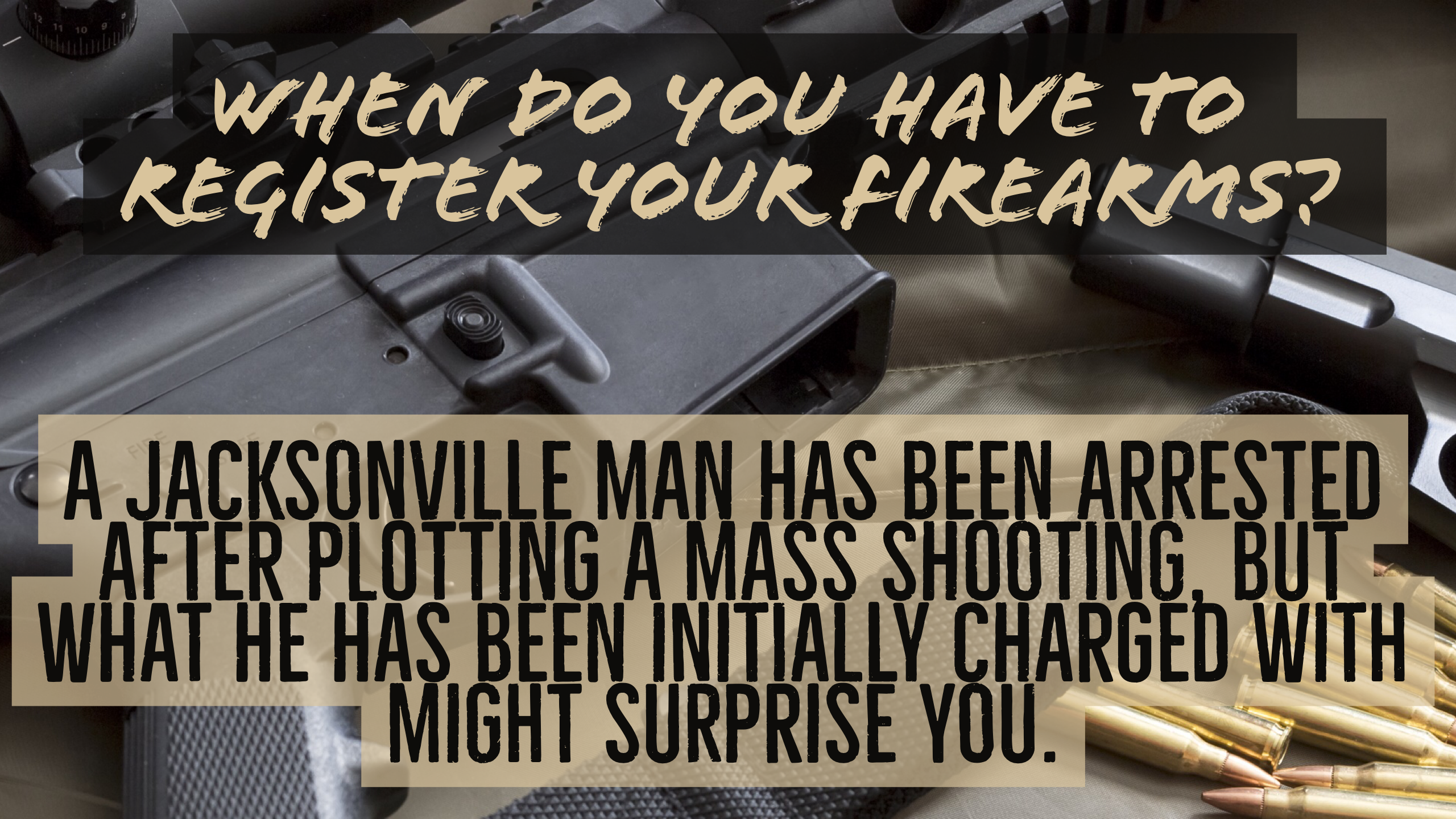
Bernandino Bolatete has been arrested and charged by criminal complaint in federal court in Jacksonville, Florida after threatening to a mass shooting at a local mosque. But what he has initially been charged with might surprise you? Rather than a charge related to a terroristic threat, Mr. Bolatete has been charged with knowingly receiving and possessing a silencer that was not registered to him in the National Firearms Registration and Transfer Record. 26 U.S.C. §5861(d) makes it a federal offense to receive or possess certain unregistered firearms. Included in the definition of a firearm under the applicable section is a silencer. Mr. Bolatete is charged with receiving and possessing a firearm provided to him by an undercover officer.
What is the National Firearm Registration and Transfer Record (NFRTR)
The National Firearm Registration and Transfer Record (NFRTR) is a national registry of certain firearms that are subject to the National Firearms Act. It is a federal criminal offense to possess or receive certain firearms that have not been registered to you in the NFRTR. The Act only applies to certain firearms. The registry includes:
- identification of the firearm
- date of registration
- identification and address of the person to whom the firearm is registered
Possession or receipt of a firearm that has not been registered to you is a Federal felony punishable by up to ten (10) years in prison.
What kinds of firearms have to be registered under the National Firearms Act?
Not all firearms are subject to the National Firearms Act. Only certain firearms must be registered. Those firearms that must be registered include:
- a shotgun, or a weapon made from a shotgun, with a barrel of less than 18 inches in length
- a rifle, or a weapon made from a rifle, with a barrel of less than 16 inches in length
- any other weapon capable of being concealed on the person from which a shot can be discharged through the energy of an explosive, which includes:
- pengun
- knife gun
- umbrella gun
- pistols and revolvers having smooth bore barrels designed or redesigned to fire a fixed shotgun shell
- machine guns
- silencers
- destructive devices
Notice that a rifled bore pistol or revolver is not subject to the National Firearms Act and thus do not have to be registered. So, most common semi-automatic pistols purchased in a gun store would be exempt from the registration requirement. If you have specific questions about whether a particular weapon has to be registered or would like to see the definitions of the above listed weapons, check out the ATF’s National Firearms Act Handbook for more information. Firearms that are subject to the National Firearms Act remain subject to the registration requirements even if they are unserviceable. Certain antique firearms are not subject to the National Firearms Act.
What is it illegal to do with these firearms?
The National Firearms Act makes it a federal offense to possess or receive a firearm subject to the National Firearms Act that is not registered to you. So, in Mr. Bolatete’s case, he is charged with receiving or possessing a silencer, which is subject to the National Firearms Act, without having that silencer registered to him in the National Firearms Registration and Transfer Record. He is facing up to ten (10) years on this charge alone. The National Firearms Act also makes it illegal to possess a firearm with an altered or removed serial number and to alter or remove the serial number yourself. Among other things, the Act also makes it a crime to make, or cause to be made, a false entry on any record required by the chapter knowing that the entry is false.
So, what about Mr. Bolatete’s case?
Although Mr. Bolatete is only currently charged with one count of possessing a silencer without having the silencer registered to him in the NFRTR, he has not been indicted yet. In other words, the government has arrested him and filed a criminal complaint signed by the case agent, but a grand jury has not indicted him on formal charges. That step comes next. The U.S. Attorney’s Office can seek an indictment for that single count, more counts, or different counts. They can add charges relating to terroristic threats if they believe they have the evidence to proceed or add any other counts that they believe they can prove. If the grand jury agrees, they would sign an indictment and Mr. Bolatete would have an arraignment on that indictment. It is typical for the government to initiate a federal criminal case with a complaint that brings one single count that is the strongest and easiest to prove initially before they obtain other evidence and get organized on other counts prior to going before a grand jury. At the grand jury, the U.S. Attorney’s Office would call a witness or witnesses to testify to the facts that establish the elements of each offense the U.S. Attorney’s Office would like to indict the defendant on. Typically, the U.S. Attorney’s Office may only call the case agent to testify and hearsay evidence is permissible. The defendant is not entitled to be present before the grand jury or to have a criminal defense attorney appear before the grand jury. The government need only establish probable cause for the charged offenses. Because it is a one sided affair, the U.S. Attorney’s Office will typically be able to obtain an indictment on all counts for which they seek to prosecute. As for Mr. Bolatete, I wouldn’t be surprised to see additional charges returned on an indictment in this particular case.

Jeremy Lasnetski
Jeremy Lasnetski, managing partner at Lasnetski Gihon Law is a Florida Bar Board Certified Criminal Trial Lawyer and has been practicing criminal law in Jacksonville for over 16 years. Mr. Lasnetski received his Bachelor of Arts degree with honors from the University of Florida in 1997 and went on to obtain a law degree and an M.B.A. from the University of Florida in 2001.
After graduation, Mr. Lasnetski accepted a position as a prosecutor at the State Attorney’s Office in Jacksonville. During the next 6 1/2 years as a prosecutor, Mr. Lasnetski tried more than 50 criminal trials, including more than 40 felony trials. He was promoted in 2007 to Division Chief of the Repeat Offender Unit. Mr. Lasnetski was also a full time member of the Homicide Prosecution Team. In 2008, Mr. Lasnetski formed the Law Office of Lasnetski Gihon Law and began defending citizens in criminal court. He represents clients in both State and Federal criminal courts.
 Jacksonville Criminal Lawyer Blog
Jacksonville Criminal Lawyer Blog

